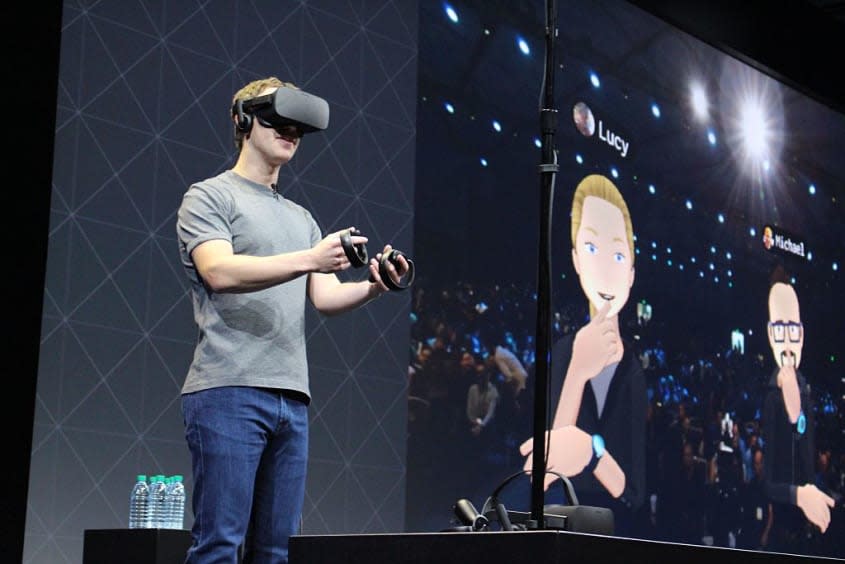Facebook reportedly believes now is a great time to change its name

- Oops!Something went wrong.Please try again later.
Facebook is planning to change its name next week as part of a rebranding meant to emphasize that it is no longer just a $1 trillion social media giant, The Verge reported late Tuesday, citing "a source with direct knowledge of the matter." The new name is a closely guarded secret, though it might include some iteration of "Horizon."
A name change could certainly help Facebook move past all the recent scrutiny of its algorithm and social media business, exposed by former employee Frances Haugen in The Wall Street Journal, a 60 Minutes interview, and in high-profile congressional testimony. But CEO Mark Zuckerberg is apparently tying the rebrand to his aspirations for Facebook to become "a metaverse company."
Zuckerberg told The Verge in July that over the next several years, "we will effectively transition from people seeing us as primarily being a social media company to being a metaverse company." The metaverse, he added, is "going to be a big focus, and I think that this is just going to be a big part of the next chapter for the way that the internet evolves after the mobile internet." One problem for Zuckergerg's aspirations, The Verge notes, is that "metaverse" is "still not a concept that's widely understood."
The "metaverse" is not, as its name might suggest, a self-referential tech-bro universe of naval-gazing, inside jokes, and selfies, but rather, Reuters explains, "a broad term" that "generally refers to shared virtual world environments which people can access via the internet."
It encompasses virtual reality (VR) and augmented reality (AR) — a focus of both Facebook and its Oculus brand — a specific blockchain technology, shared environments in gaming, and hyper-realistic digital worlds envisioned in science fiction books and films. In fact, "the term was coined originally by sci-fi novelist Neal Stephenson to describe a virtual world people escape to from a dystopian, real world," The Verge says.
In this real world, "the idea of the metaverse is that it will create new online spaces in which people's interactions can be more multi-dimensional, where users are able to immerse themselves in digital content rather than simply viewing it," Reuters reports. "The accelerated interest in the metaverse can be seen as a result of the COVID-19 pandemic. As more people have started working and going to school remotely, there has been increased demand for ways to make online interaction more lifelike."
You may also like
How one group's plan to out GOP lawmakers who attended Jan. 6 proved futile
Republicans pitching inflation as Democrats' downfall ahead of midterms: 'Voters are nervous'

